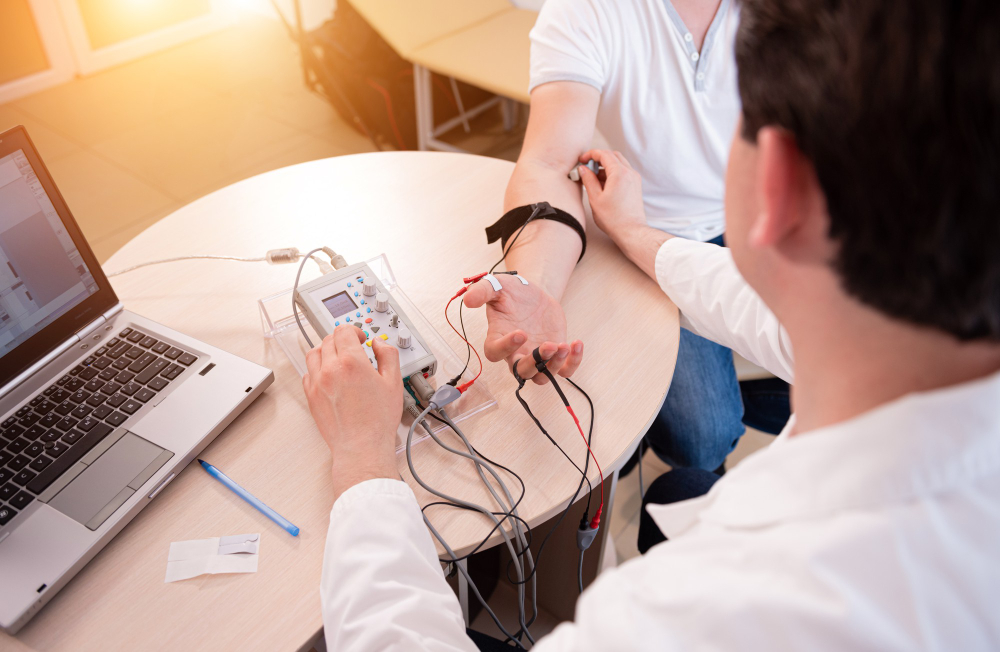
What is NCS/EMG Testing?
At our clinic, we offer Nerve Conduction Studies (NCS) and Electromyography (EMG) testing to help diagnose conditions affecting your nerves and muscles. These tests are commonly ordered by physicians when patients are experiencing symptoms such as:
- Numbness or tingling
- Pain in the arms, legs, or spine
- Muscle weakness
- Unexplained muscle cramping or twitching
What is the Purpose of an EMG?
An EMG (Electromyography) is a diagnostic test that helps evaluate the health of your muscles and the nerve cells that control them. These nerve cells, called motor neurons, send electrical signals that cause your muscles to contract.
The EMG test measures how well your muscles and nerves are working together. If you’re having symptoms like weakness, tingling, or muscle cramps, an EMG can help determine whether the cause is related to your muscles, your nerves, or the communication between them.
Some conditions EMG testing can help diagnose include:
- Carpal tunnel syndrome
- Pinched nerves in the neck or back (radiculopathy)
- Peripheral neuropathy (nerve damage, often from diabetes)
- Muscle disorders such as muscular dystrophy
What Happens During the Test?
- Nerve Conduction Study (NCS): Small electrodes are placed on your skin to stimulate specific nerves. The test measures how quickly and strongly your nerves send electrical signals.
- Electromyography (EMG): A very fine needle electrode is gently inserted into a few muscles to record their electrical activity while you’re at rest and during movement. The test may cause some minor discomfort, but it is generally well-tolerated.
How Long Does It Take?
The full test usually takes between 30 to 60 minutes, depending on how many areas need to be tested. You can resume most normal activities afterward.
Is It Painful?
Some patients describe the test as uncomfortable but tolerable. You may feel brief tingling or a muscle twitch during NCS, and slight soreness where the EMG needle was inserted. There are no long-lasting side effects from the test.
Can I Have an EMG While on Blood Thinners?
Yes, EMG testing can be performed while taking blood thinners, but your doctor must be informed in advance. If you are on blood thinners (such as warfarin, Eliquis, Xarelto, Plavix, or others), there is a slightly higher risk of bruising or bleeding at the site where the needle is inserted. Precautions such as using smaller needles or avoiding certain muscles will be taken.
Preparing for Your Appointment
- Wear loose, comfortable clothing. You may be asked to put on a gown to allow access to areas being tested.
- Do not apply lotion or oils to your skin on the day of the test. Lotions affect the ability of the sensors to be properly placed during testing.

Get Expert Pain Relief in Arlington Heights & Bloomingdale
Advanced Pain & Spine Management provides comprehensive, minimally invasive pain treatments to help you regain comfort and mobility. Our experienced team proudly serves patients in Arlington Heights and Bloomingdale, IL.
Arlington Heights:
Phone: (847) 797-4888
121 S Wilke Rd, Arlington Heights, IL 60005
Bloomingdale:
Phone: (331) 345-4599
303 E Army Trail Suite 410B, Bloomingdale, IL 60108
